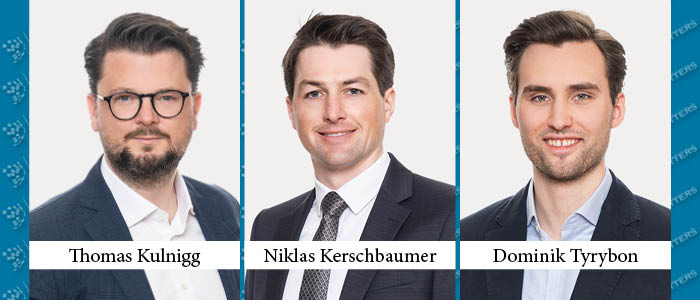On 15 December 2023, Austria's National Council of the Parliament (lower house) adopted the Flexible Company Act (Flexible-Kapitalgesellschafts-Gesetz, FlexKapGG), which introduces a new company form, the "Flexible Company" (FlexCo) as of 1 January 2024.
As its name suggests, the FlexCo is all about being flexible and it addresses longstanding criticisms directed at Austria's predominant corporate form, the limited liability company (GmbH). The GmbH has faced extensive criticism in the start-up world due to its perceived lack of flexibility and strict formal requirements. The FlexCo combines features from both the conventional GmbH and the stock corporation (AG) but also introduces some totally new concepts to Austrian corporate law, such as company value shares.
But what exactly does the FlexCo bring to the table? In this article, we will present the key characteristics of this new company form.
Reduced capital requirements
Key aspects
- Minimum share capital reduced to EUR 10,000 – this applies to the FlexCo and to the GmbH.
- Minimum initial contribution is EUR 5,000 – this applies to the FlexCo and to the GmbH.
- Minimum individual contribution is EUR 1 – this applies to the FlexCo only.
Circular shareholder resolutions
Key aspects
- Circular shareholder resolutions are possible without the consent of all shareholders.
- Circular resolutions are valid when all entitled shareholders can participate.
- Votes can be cast in text form, allowing for digital voting methods.
Split Voting
Key aspects
- Shareholders with multiple votes can engage in split voting, significant in trustee frameworks.
Fractional shares
Key aspects
- The FlexCo allows issuance of fractional shares, enabling diverse share classes with distinct rights.
- Simplification of share tracking, especially in trust structures.
Company value shares (CVS)
Key aspects
- Together with the FlexCo, a new share class is introduced.
- Designed for employee participation but also issuable to other stakeholders.
- Mandatory tag-along right for CVS holders in the event of a sale of a majority stake by founding shareholders.
- Up to 25 % of share capital can be issued as CVS.
- No voting rights, but veto right for certain corporate measures. CVS holders may attend shareholder meetings.
- Minimum nominal value of one cent.
Simplified transfer of ownership
Key aspects
- Notarial deed no longer required for share transfers and new share subscriptions.
- Private deed executed by attorney or notary can document share transfers and new share subscriptions.
Flexibility regarding capital measurements
Key aspects
- FlexCos can acquire and hold their own shares.
- Capital raising instruments resemble existing concepts at AGs, such as conditional capital and authorised capital.
Supervisory boards
Key aspects
- Lower threshold for establishing a mandatory supervisory board in a FlexCo.
- A supervisory board is mandatory if at least two of the following criteria are exceeded: (i) EUR 5m balance sheet total; (ii) EUR 10m turnover; or (iii) an average of 50 employees.
Conversion
Key aspect
- FlexCos can be easily converted into a GmbH or AG and vice versa.
Conclusion
For those who want it, the FlexCo brings flexibility by mixing the features of the Austrian Joint Stock Company (AG) and the Austrian Limited Liability Company (GmbH). Most features are not mandatory. Shareholders of a FlexCo still benefit from a lower share capital and reduced transfer formalities. As with any new law, however, there are legal uncertainties and room for interpretation.
The introduction of the FlexCo is a positive step for the Austrian start-up landscape toward greater flexibility and international competitiveness. Will the FlexCo be a gamechanger for entrepreneurs in Austria? Time will tell.
By Thomas Kulnigg, Partner, Niklas Kerschbaumer, Attorney at Law, and Dominik Tyrybon, Associate, Schoenherr


